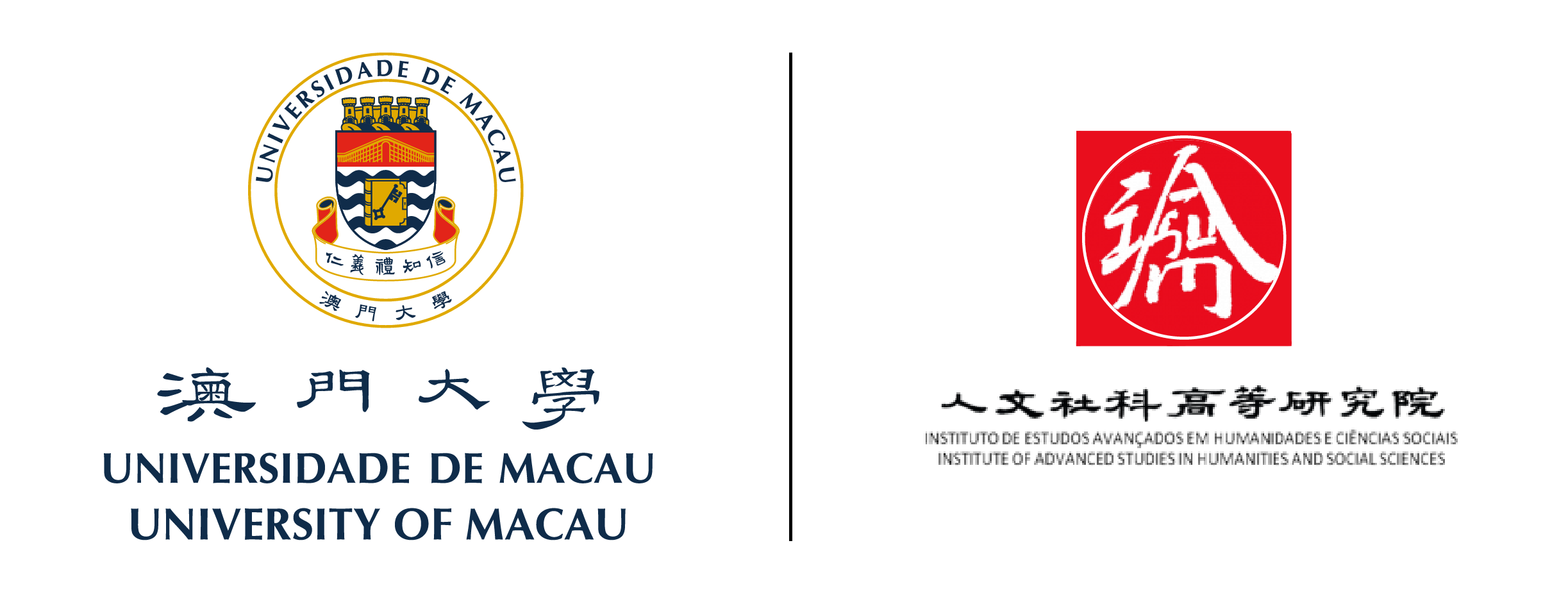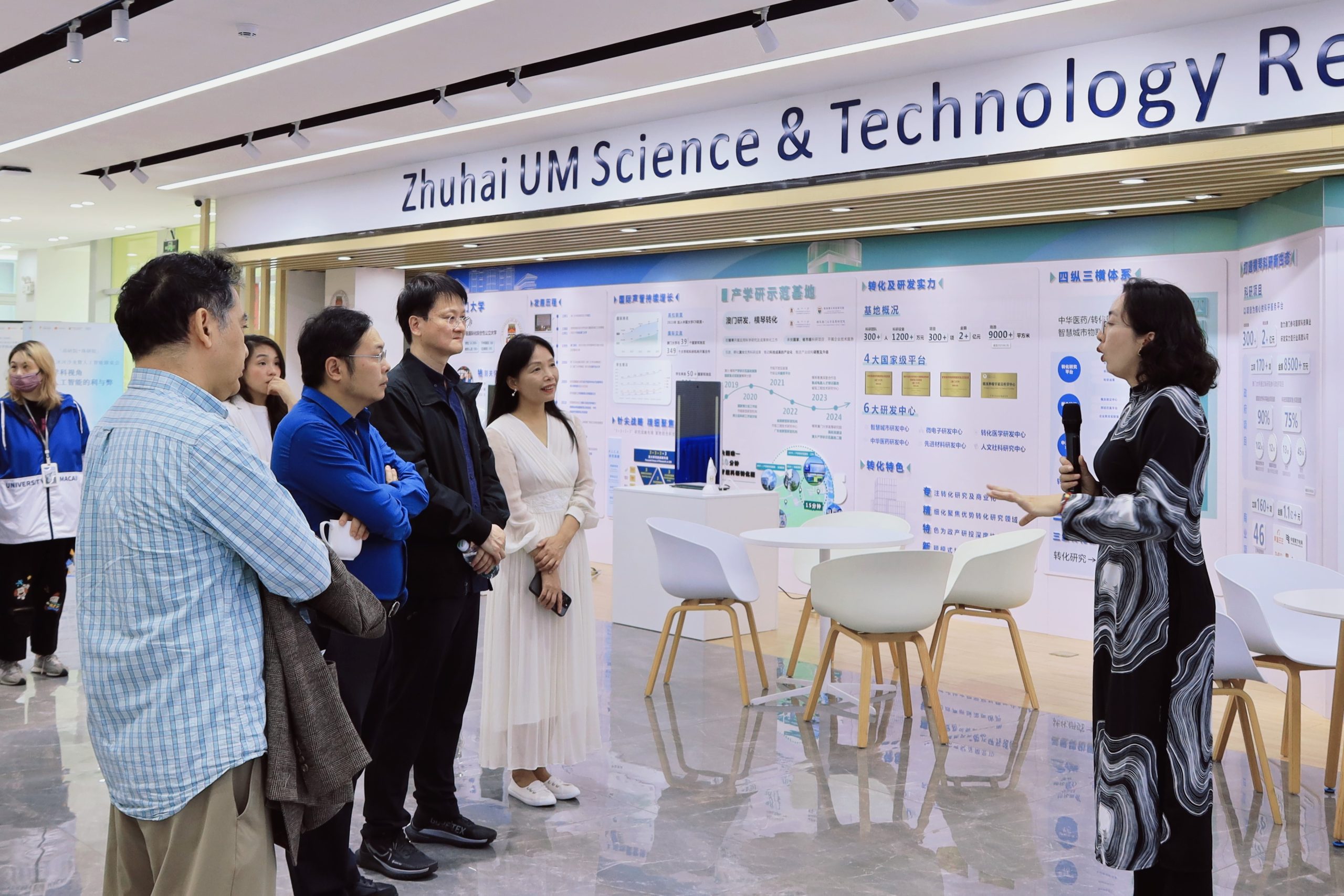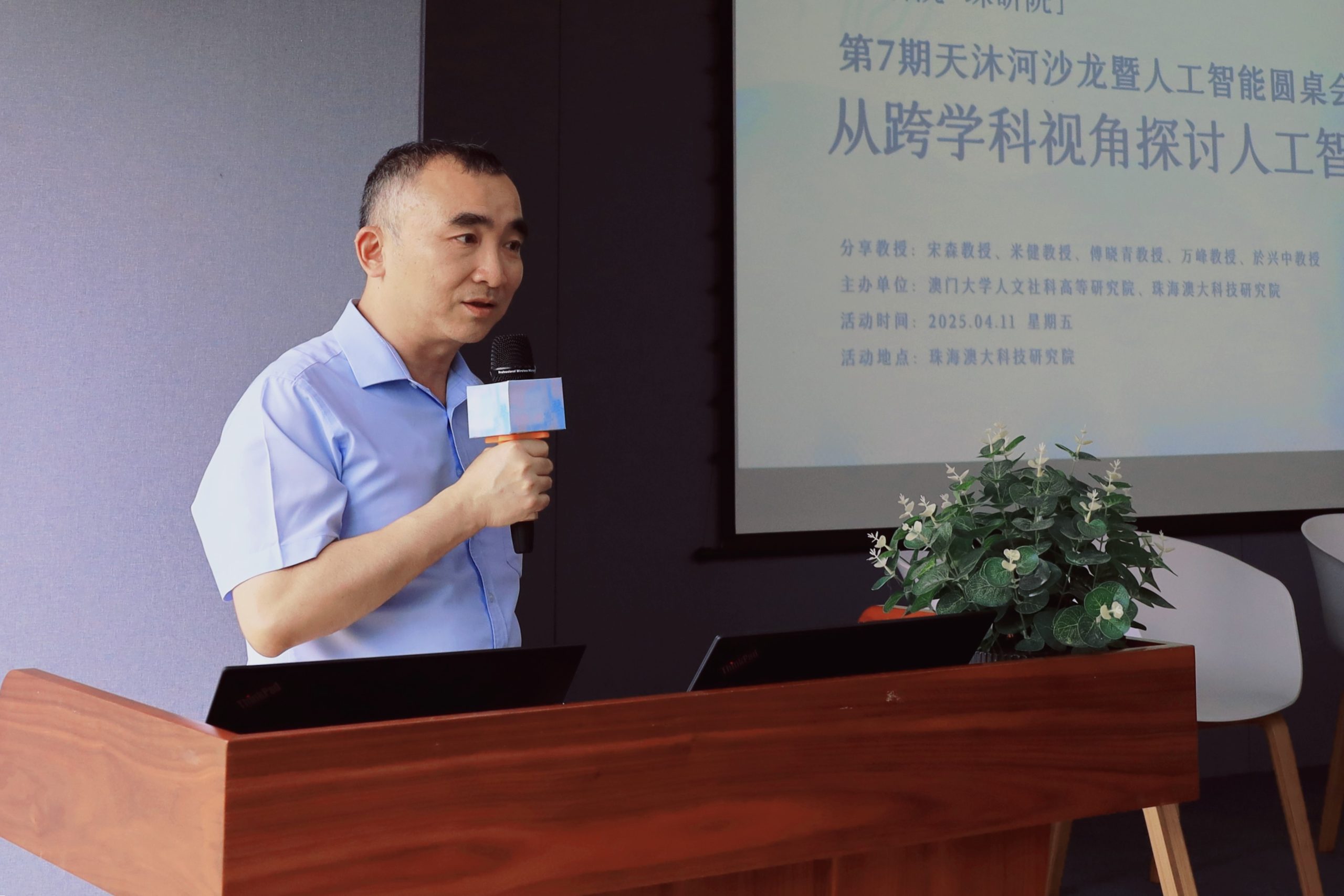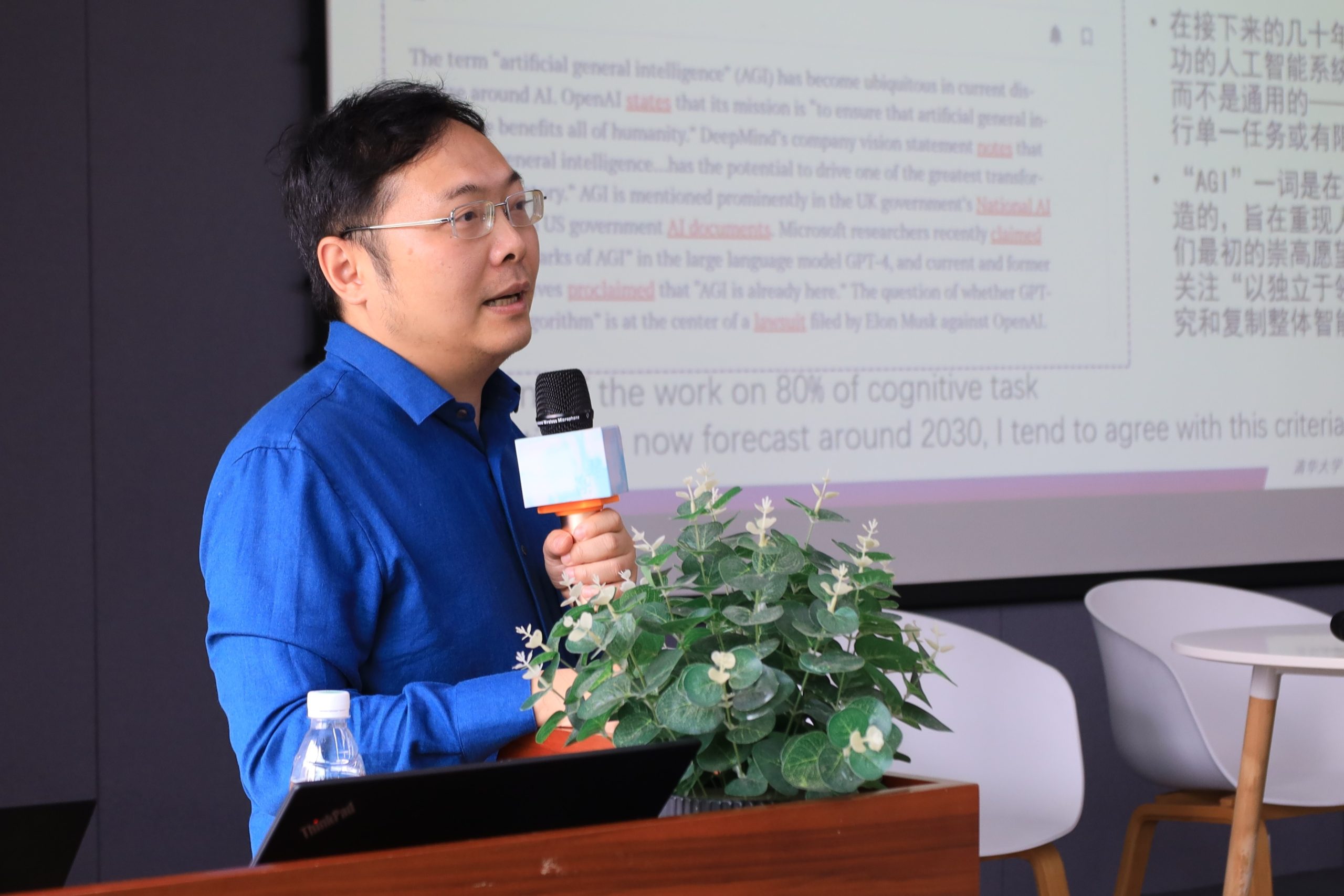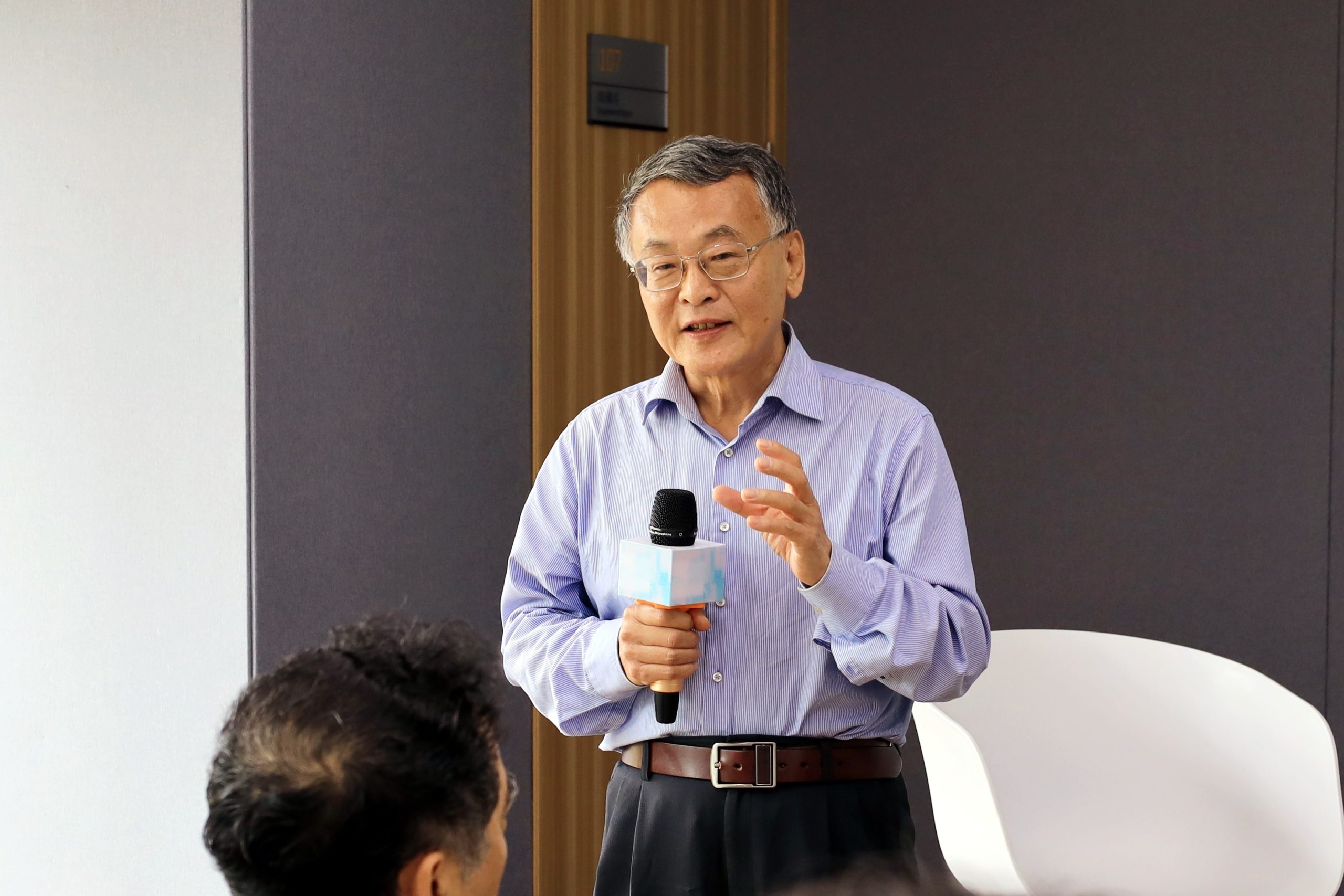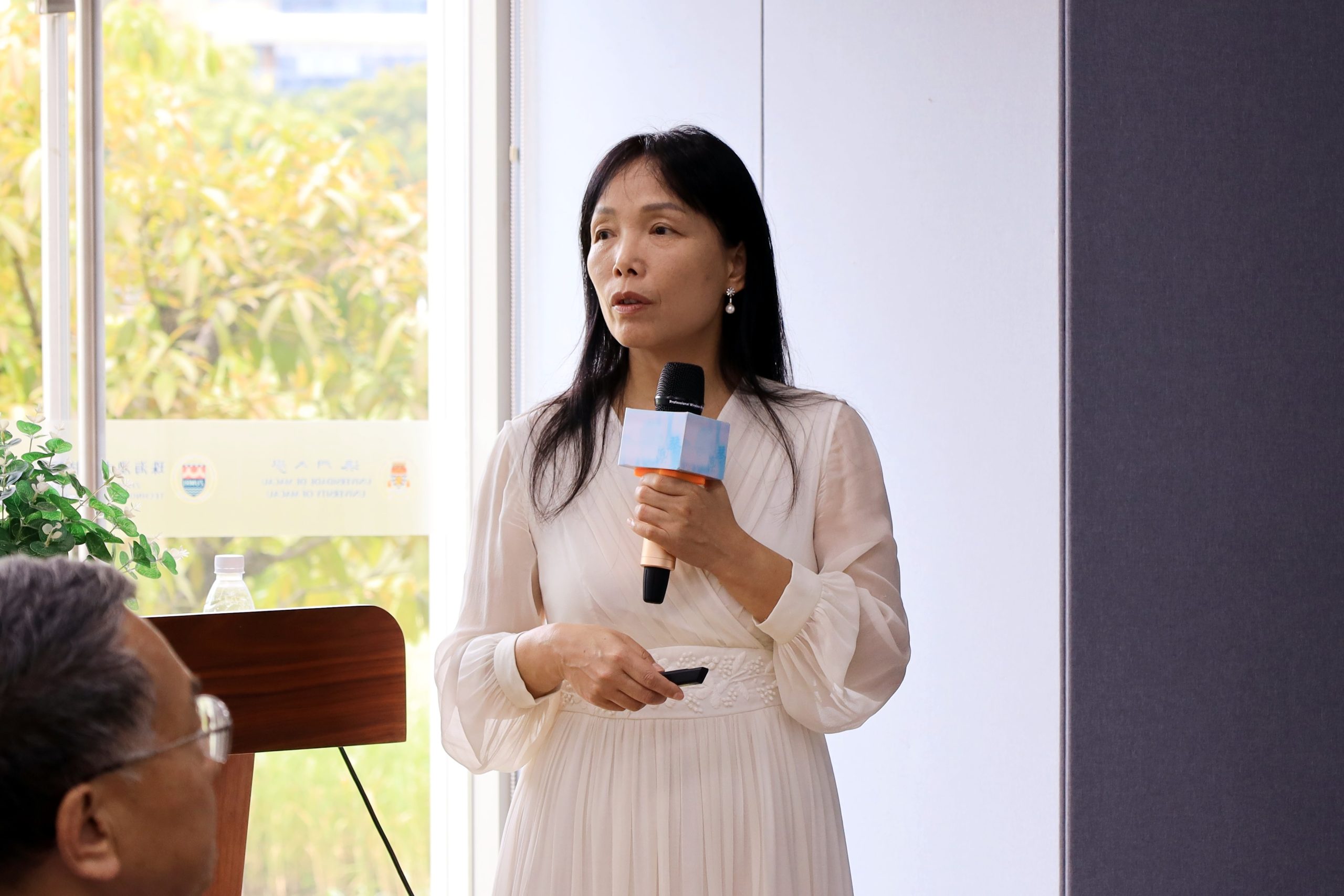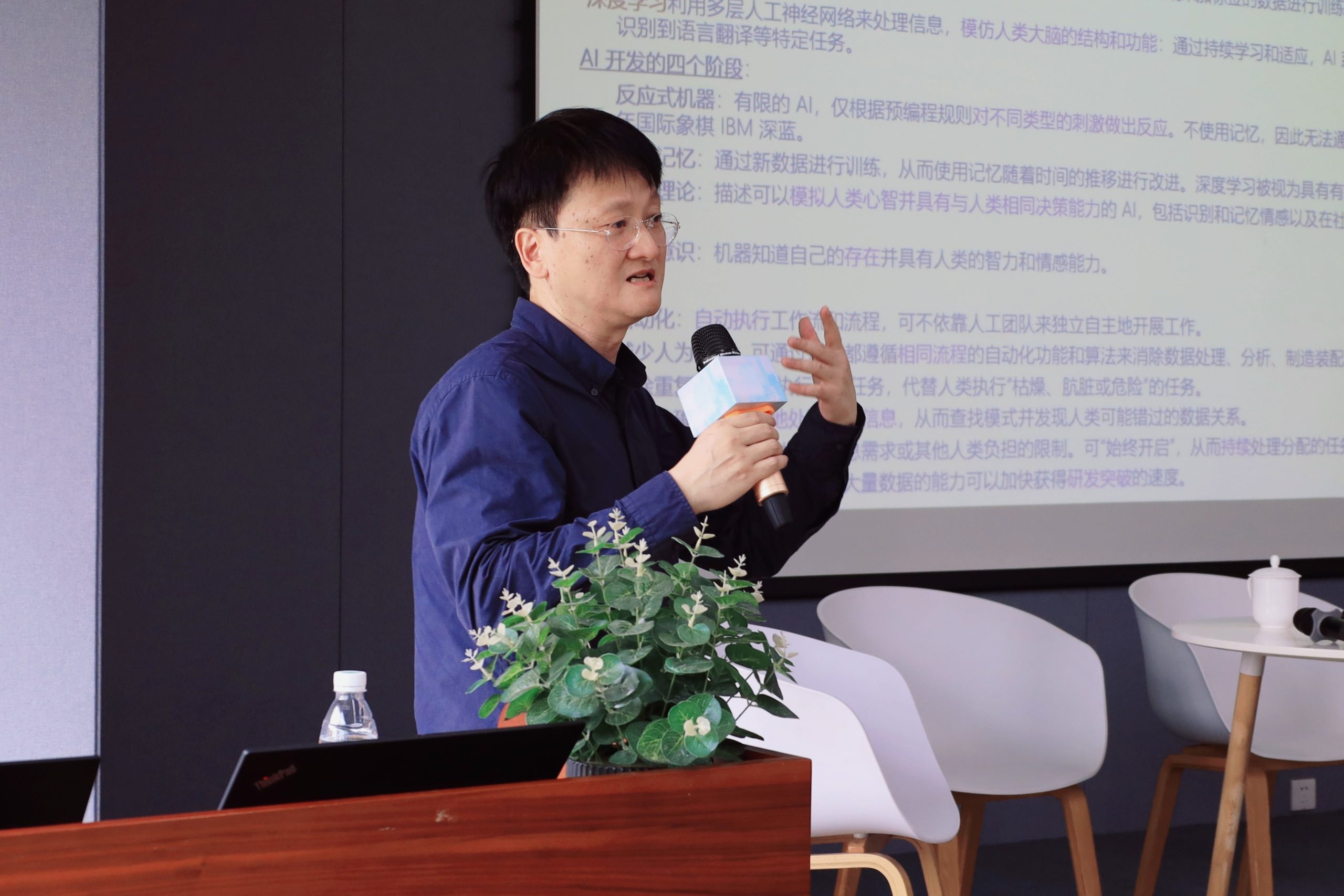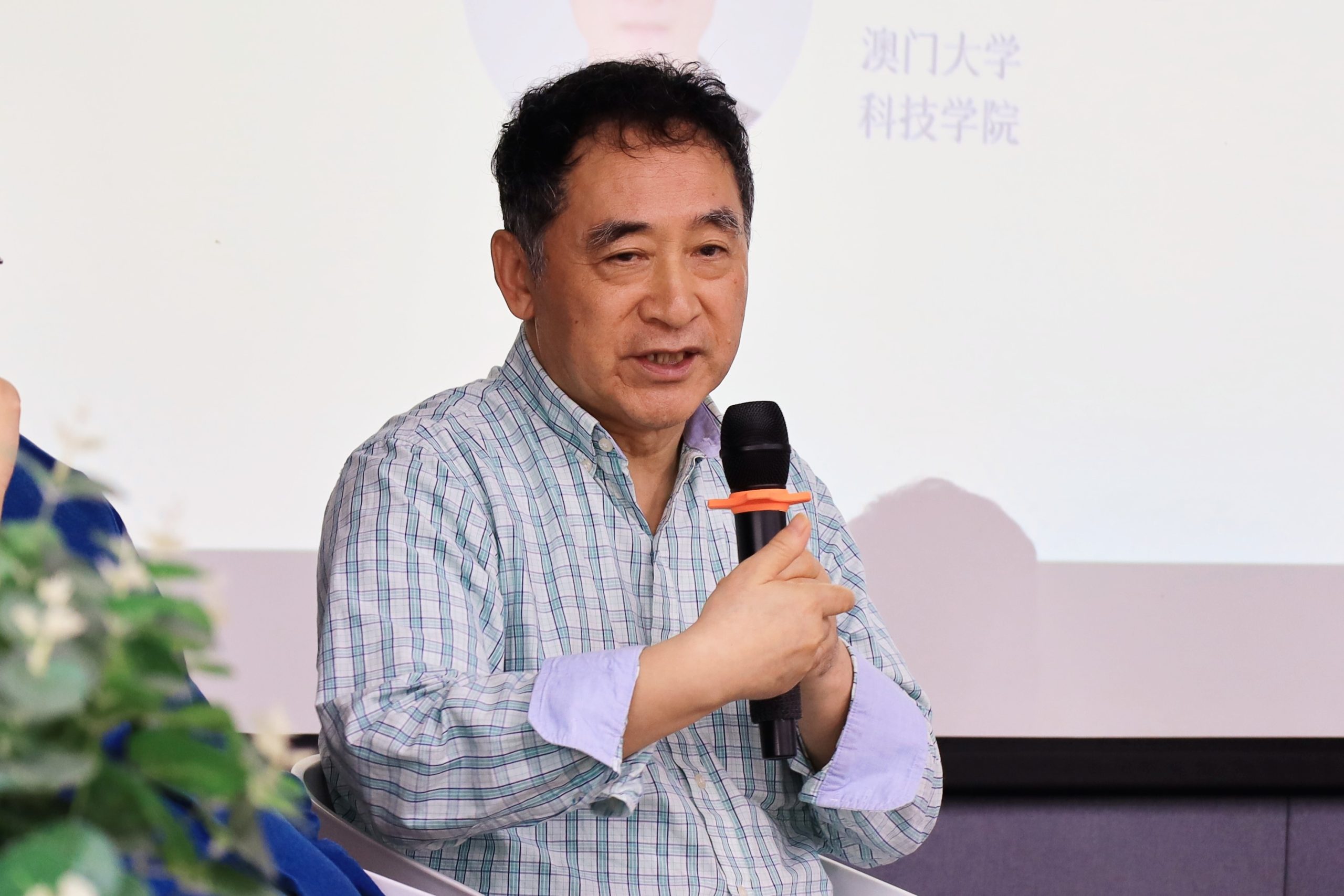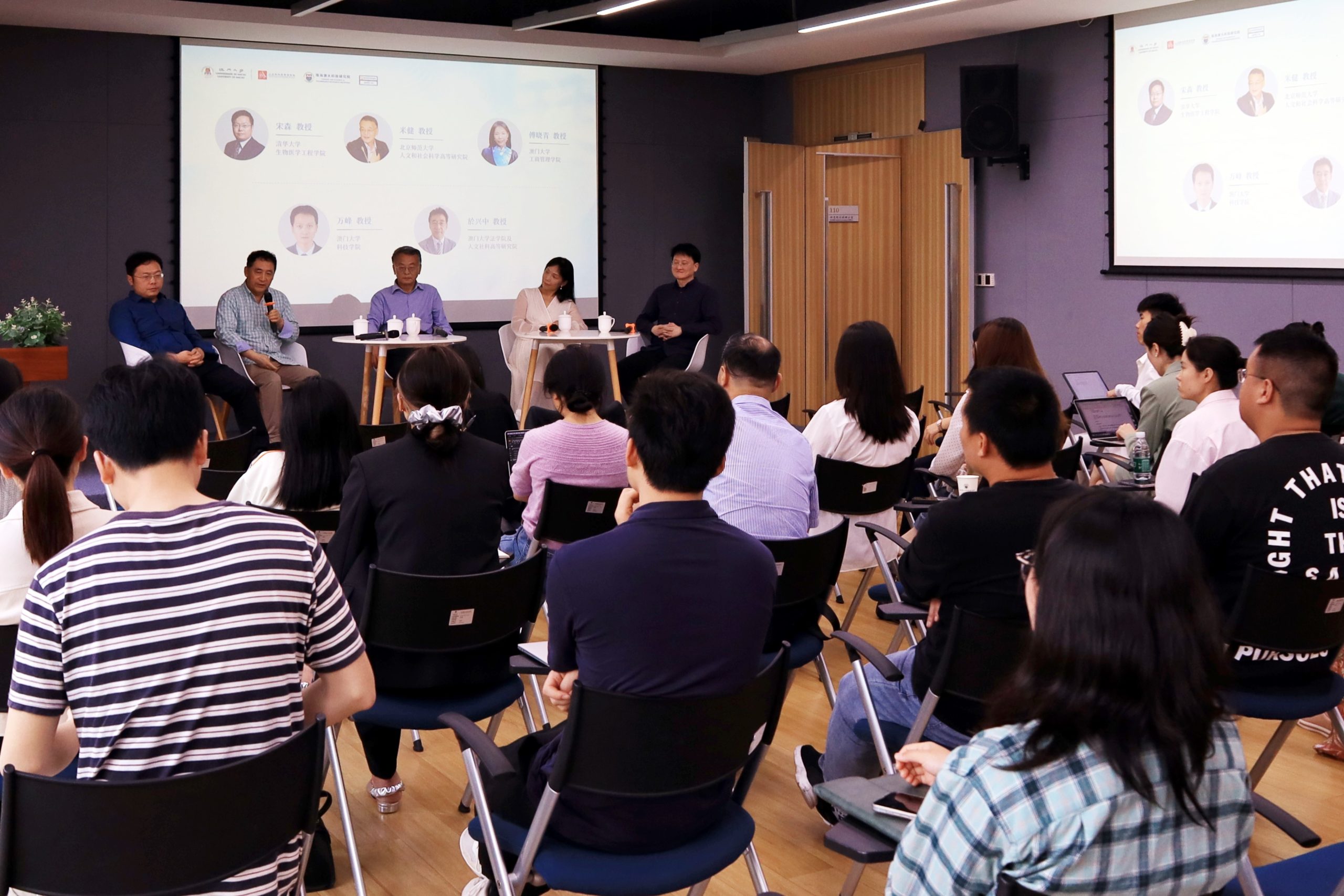
The 7th Tianmuhe Salon and Artificial Intelligence Roundtable, co-organized by the Institute of Advanced Studies in Humanities and Social Sciences (IAS), UM and the Zhuhai UM Science and Technology Research Institute (ZUMRI), was successfully held on April 11 at ZUMRI. The event invited several distinguished speakers including Professor Sen Song from School of Biomedical Engineering of Tsinghua University, Professor Jian Mi from the Institute of Advanced Studies in Humanities and Social Sciences of Beijing Normal University, Professor Xiaoqing Fu from Faculty of Business Administration of the University of Macau, Professor Feng Wan from Faculty of Science and Technology of the University of Macau, as well as ProfessorXingzhong Yu from the Faculty of Law and IAS. The theme is “Exploring the Benefits and Harms of AI from Interdisciplinary Perspectives.”This event was another collaborative effort between IAS and ZUMRI following previous lectures themed on humanities and social science, aiming to transcend disciplinary boundaries, achieve academic synergistic effect, foster dialogue between the field of humanities and technology, and encourage interdisciplinary exploration that integrates humanities, social sciences, and science and technology.
Professor Guokai Chen noted that the Tian Mu River Salon at ZUMRI serves as an innovative platform for collaboration and communication, aimed at sharing industry trends and cutting-edge technologies. He highlighted that considering artificial intelligence (AI) solely through the perspectives of science would be overly one-sided. He hoped that this roundtable would bring together experts from various disciplines to incorporate diverse academic perspectives into discussions about the advantages and disadvantages of AI.
Professor Feng Wan began clarified key concepts of artificial intelligence, explaining that AI mimics human intelligence, enabling machines to think and make decisions like humans. AI operates based on data, running algorithms, with deep learning being a simulation of human cognitive processes. Through data analysis, Professor Wan analyzed public attitudes towards AI applications. Professor Wan shared examples of AI-generated poetry, visual art, and other creative works based on the roundtable’s theme. Finally, he summarized the contradictions and challenges posed by AI, such as issues with employment, monopolization, national hegemony, environmental impact, privacy security, data bias, forgrey, military applications, and the black-box problem of AI systems. He emphasized that technology should serve humanity, and called for regulatory guidance and legal supervision to foster an AI with social responsibility.
Professor Sen Song offered a positive perspective on AI from the values of liberty, equality, and fraternity. He explained that when 80% of repetitive labor is handled by AI, humans would be able to freely engage in creative work, achieving a balanced and comfortable work-life dynamic. Developing general AI that is close to human intelligence requires balancing spontaneity with controllability and exploring AI’s ability to learn in complex areas such as humor. He also highlighted AI’s ability to enable ordinary people to quickly acquire expertise in unfamiliar fields, which could lead to a professional crisis for “mediocre experts.” Lastly, he noted that human conflicts often stem from arrogance and prejudice, which AI could help mitigate by offering more comprehensive considerations and addressing blind spots in human thinking.
Professor Xiaoqing Fu shared empirical insights on how AI supports the sustainable development of technology startups. She introduced a technical value-benefit model for assessing high-tech startups, leveraging AI to evaluate five dimensions: technological novelty, lifecycle, complementarity (e.g., robots and IoT), market factors (commercialization), and risk management capabilities of the team. Tests showed this model achieved an average accuracy of 92%, significantly saving the time and cost in seeking coopeation with consulting firms. While foreign startups excel in technological novelty, Chinese startups have a competitive edge in market application. She emphasized that although China stands out among developing countries, it still needs to strengthen its computational power in complementary aspects.
Professor Jian Mi also addressed the humanistic implications of technology, asserting that the combination of AI, the internet, and big data has ushered in a post-human era characterized by self-alienation and the negation of humanity. Professor Mi argued that the key distinction between humans and AI lies in thoughts. While AI can perform reasoning, deduction, and induction, its future development faces the choice between infinite expansion and limited progression. He summarized concerns about the ethical and moral disruptions AI might bring, technological control and social stratification, authoritarianism in social governance, and the potential rewriting of human civilization’s essence if AI becomes a legal entity.
Professor Xingzhong Yu shared his observations that discussions about AI often emphasize its benefits. However, incidents like algorithm-based bail decisions predicting recidivism, the Boeing 737 autopilot crashes, and the recent Xiaomi SU7 traffic accident involving locked car doors demonstrate that AI-related issues persist, and much of the news around AI remains more hype than substance. In AI application development, platforms focus on profit, and governments prioritize order, which can lead to practical concerns. Professor Yu called for an interdisciplinary approach to gather diverse perspectives and guide AI development toward the improvement of society.
The roundtable attracted over 100 participants, including faculty, students, and researchers from inside and outside the university. During the discussion session, audiences engaged in a vibrant interdisciplinary and cross-industry academic exchange with the speakers. IAS and ZUMRI plan to continue hosting high-quality academic events to provide more opportunities for the academia and society, promote academic exchange in the Greater Bay Area, and broaden interdisciplinary knowledge horizons.

